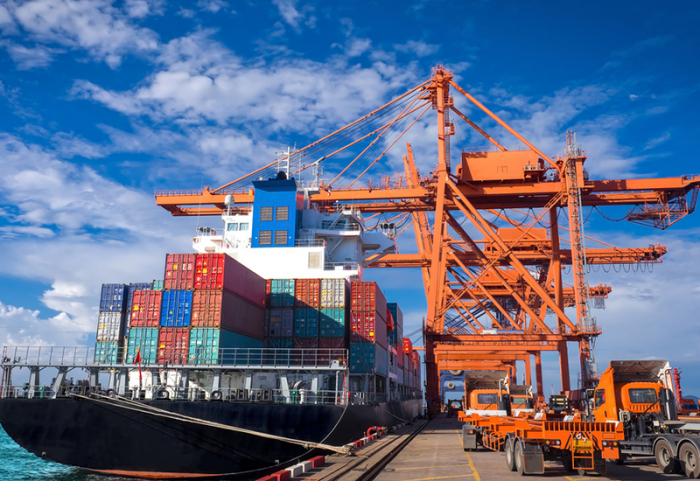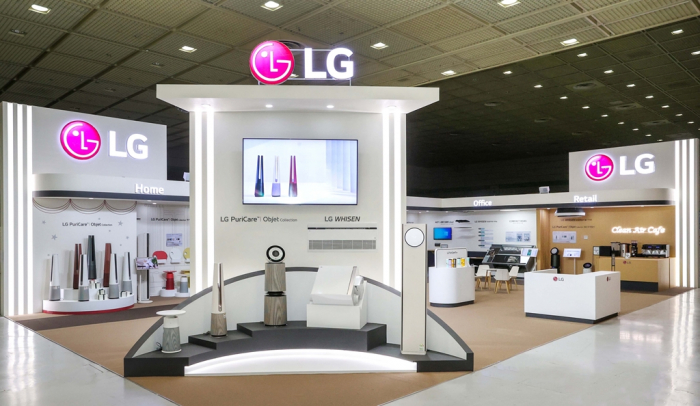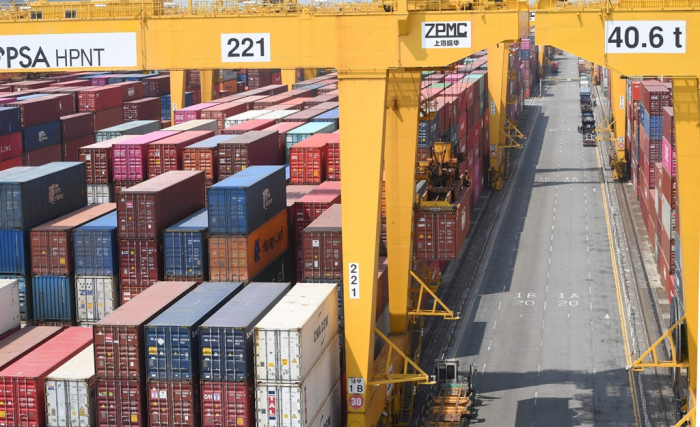Logistics
Falling freight rates set to boost LG, Hyundai’s earnings
Korean exporters are seeing light at the end of the tunnel after years of heavy shipping costs
By Apr 05, 2023 (Gmt+09:00)
3
Min read
Most Read
LG Chem to sell water filter business to Glenwood PE for $692 million


Kyobo Life poised to buy Japan’s SBI Group-owned savings bank


KT&G eyes overseas M&A after rejecting activist fund's offer


StockX in merger talks with Naver’s online reseller Kream


Mirae Asset to be named Korea Post’s core real estate fund operator



The significant fall in seaborne freight rates of late is expected to boost earnings prospects for South Korea’s major companies, benefitting from curtailed logistics costs in the post-pandemic era.
According to the Shanghai Shipping Exchange on Wednesday, the Shanghai Containerized Freight Index (SCFI), a barometer of global freight rates, fell to a multi-year low of 923.78 at the end of March.
With the resumption of business activities following the pandemic, global shipping costs soared, sending the index to an all-time high of 5,109.6 in January 2022.
As demand outpaced the shipping industry's capacity, most Korean exporters, including Samsung, LG and Hyundai, had to pay sharply higher rates while struggling to find container ships.
However, sea freight rates have since fallen as an increasing number of ships have been deployed even as the global economy was cooling amid higher inflation and monetary tightening by central banks across the globe.
By February, the SCFI dipped below the 1,000-point mark for the first time in 32 months, with freight rates falling as much as 80% from their 2022 peak.

ELECTRONICS FIRMS, CARMAKERS TO BENEFIT
Higher seaborne and air freight rates have dealt a crushing blow to Korea, Asia’s fourth-largest economy, which heavily relies on exports for growth.
But electronics manufacturers and automakers, which earn more from overseas markets than in Korea, now stand to benefit from the falling logistics costs.
Last year, LG Electronics Inc. spent 3.95 trillion won ($3 billion) in logistics expenses, accounting for 4.7% of its sales revenue. The home appliance giant is expected to slash such costs by nearly 1 trillion won this year.
About 60% of LG’s sales come from its overseas business in North America, Europe and Asia.
LG’s home appliance division, which accounts for 80% of its entire sales, could see its profit margin rise to over 11% this year, analysts said.
“Not only sea freight rates but also ground logistics rates will fall in the coming months. Our cost structure will improve to the pre-pandemic level,” said an LG official.

SEE LIGHT AT THE END OF TUNNEL
Hyundai Mobis Co., Korea’s largest auto parts maker and a unit of Hyundai Motor Co., was among those exporters hit hardest by higher freight rates.
Its sales increased 42% to 51.91 trillion won in 2022 from 36.66 trillion won in 2020. Over the same period, its operating profit margin rose 11%, weighed down by higher shipping costs.
The company’s logistics costs in 2020 stood at 613 billion won, or 1.7% of its sales. The following year, such costs nearly tripled to 1.81 trillion won, accounting for 3.5% of its sales.
This year, Hyundai Mobis’ shipping expenses are expected to decline by 600 billion won.
“During the peak of a ship shortage in the past couple of years, we had to use an air cargo service, which is ten times more expensive than sea freight rates, to deliver our goods on time,” said a Hyundai Mobis official. “We expect visible earnings improvements from the second half.”
Nexen Tire Corp. is another big company poised to gain from falling shipping costs.
Nearly 90% of its tire sales came from overseas markets last year, when its logistics costs accounted for as much as 16.8% of sales.
This year, such costs will likely fall below 9% with an operating profit margin expected in the 5% range, a turnaround from a loss last year, analysts said.
Write to Ye-Rin Choi at rambutan@hankyung.com
In-Soo Nam edited this article.
More to Read
-
 LogisticsHyundai Glovis, Malaysia’s Lion Group to enter ASEAN logistics market
LogisticsHyundai Glovis, Malaysia’s Lion Group to enter ASEAN logistics marketNov 16, 2022 (Gmt+09:00)
1 Min read -
 LogisticsHyundai Mobis to build $69 mn integrated logistics center in Korea
LogisticsHyundai Mobis to build $69 mn integrated logistics center in KoreaNov 10, 2022 (Gmt+09:00)
1 Min read -
 EarningsHMM rakes in record quarterly profits on higher freight rates
EarningsHMM rakes in record quarterly profits on higher freight ratesNov 11, 2021 (Gmt+09:00)
1 Min read -
 LogisticsSurging freight rates, bulker shortages squeeze Korean importers
LogisticsSurging freight rates, bulker shortages squeeze Korean importersJan 21, 2021 (Gmt+09:00)
3 Min read -
 LogisticsKorean firms face triple whammy of soaring KRW, freight rates, Biden
LogisticsKorean firms face triple whammy of soaring KRW, freight rates, BidenNov 08, 2020 (Gmt+09:00)
6 Min read
Comment 0
LOG IN


